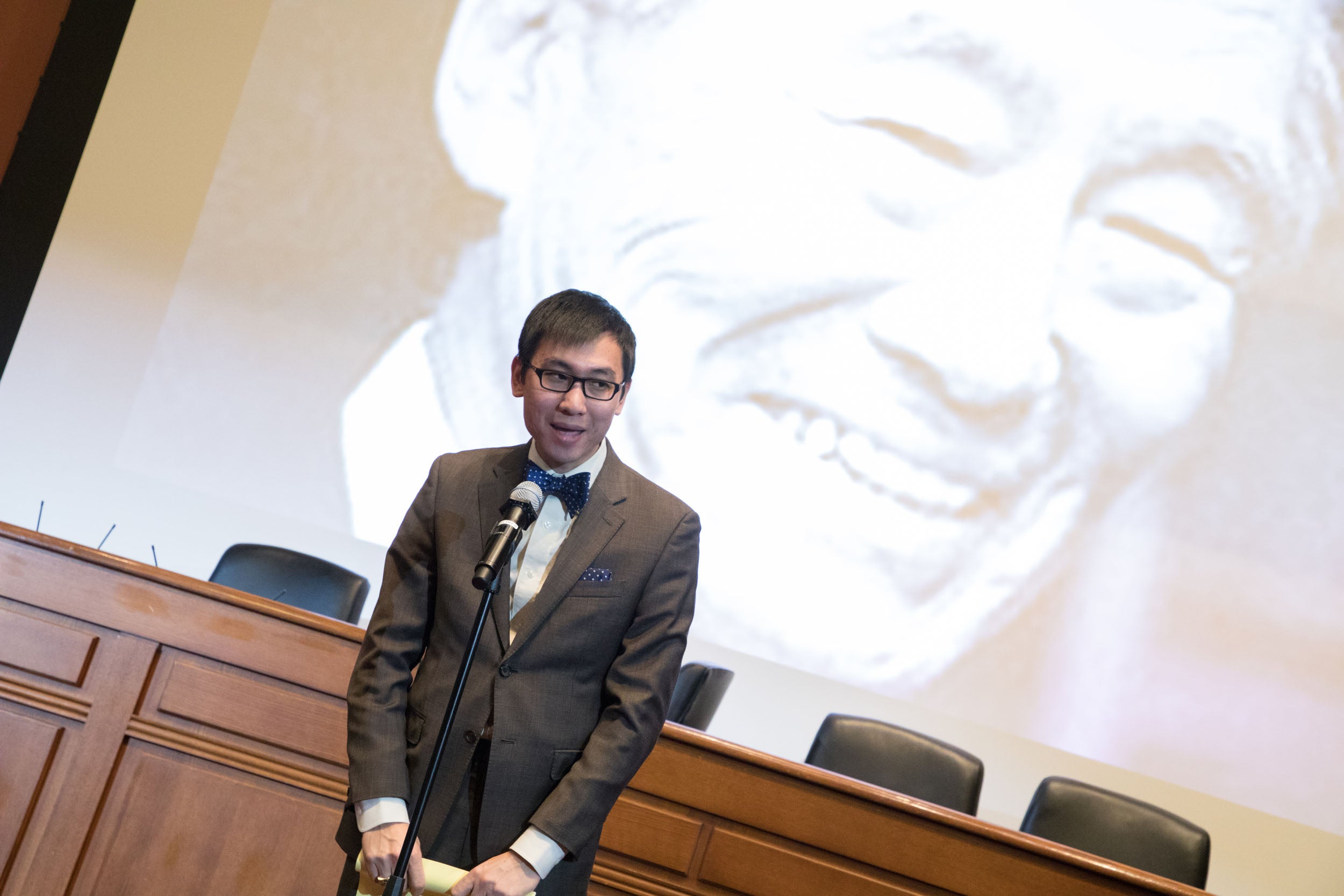As part of its annual law and policy conference on Feb. 3, the Harvard Asian Pacific American Law Students Association (APALSA) performed “Heart Mountain: Conscience, Loyalty and the Constitution,” a reenactment of the trials and the events surrounding the internment and drafting of Japanese-Americans during the Second World War. Because their families were imprisoned in the harsh, unforgiving concentration camps in the West, many Japanese-Americans resisted the draft. This refusal led to the arrest and trial of 63 young men for draft evasion as well as a trial of eight others for conspiracy to aid and abet draft resisters.
Like last year’s performance of “The Murder of Vincent Chin,” this year’s reenactment of the Heart Mountain trials showcased a pivotal moment in Asian American history. The Heart Mountain War Relocation Center, located in northwest Wyoming and named after nearby Heart Mountain, was one of ten concentration camps used for the internment of Japanese Americans evicted from the West Coast Exclusion Zone during World War II by executive order from President Franklin D. Roosevelt after the bombing of Pearl Harbor in December 1941. At HLS, professors, administrators, and students from various campus organizations brought to life a trial which raised questions about achieving genuine racial justice in our legal system.
The reenactment scripts were developed by the Asian American Bar Association of New York (AABANY), under the leadership of Judge Denny Chin of U.S. Court of Appeals of the Second Circuit and Kathy Hirata Chin, senior counsel at Cadwalader, Wickersham & Taft.
“The reenactment is one of the most exciting parts of our annual conference, and we were delighted to bring it back for a second year, said Alicia Guo ’19, APALSA conference co-chair. “It corresponds perfectly with our theme this year, which is ‘Asian America: Seen, Heard, Known,’ since the reenactment is be an opportunity for our audience to expand their knowledge and engage with American history in an immersive and memorable way.” Kevin Ratana Patumwat ’19, conference co-chair, added “As a newly naturalized citizen myself, the questions of what it means to be American, particularly what it means to be a part of this country as a minority, really hangs heavily on me. I’m very glad that the HLS community will have the chance to explore these questions at this exciting event.” This year’s reenactment was managed by Eliot Kim ’19.
“I’m really honored to take part in the reenactment of this pivotal case. I hope it will let people remember the critical importance of our civil liberties.” said Julien Tunney ’19, a second-year student who took part in the reenactment.
Judge Kiyo Matsumoto of the U.S. District Court for the Eastern District of New York also took part in the reenactment.
In his controversial Executive Order 9066, issued in February 1942, two months after the Japanese bombing of Pearl Harbor, Roosevelt effectively authorized the eviction and incarceration of Japanese-Americans, German-Americans, and Italian-Americans living in broad swathes of the country. Federal and state officials responsible for implementing the policy systematically reserved the harshest treatment for Japanese-Americans, influenced by the prevailing racially discriminatory attitude of that time. At least 100,000 people of Japanese ancestry, both U.S. citizens and non-citizens, were forcibly relocated and incarcerated in concentration camps across the West. The camps were often located in rural areas in states such as Arizona, Utah, and Wyoming. Internees included those who were 1/8 or 1/16 Japanese.
